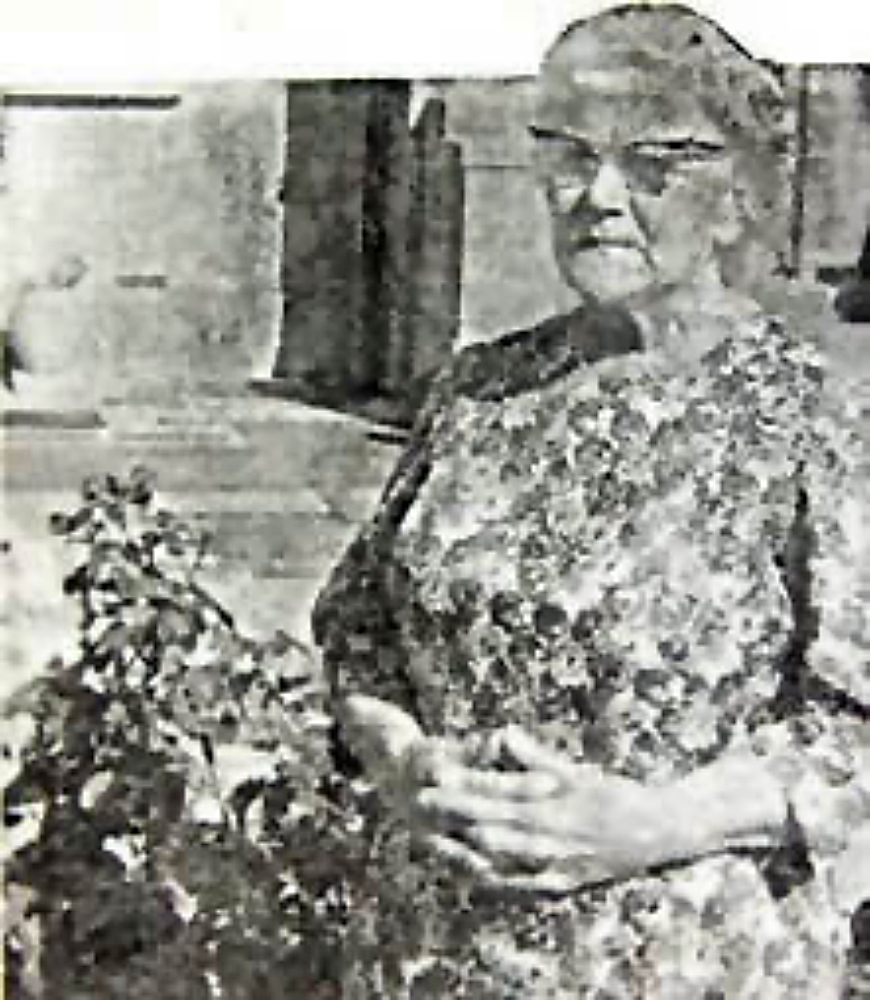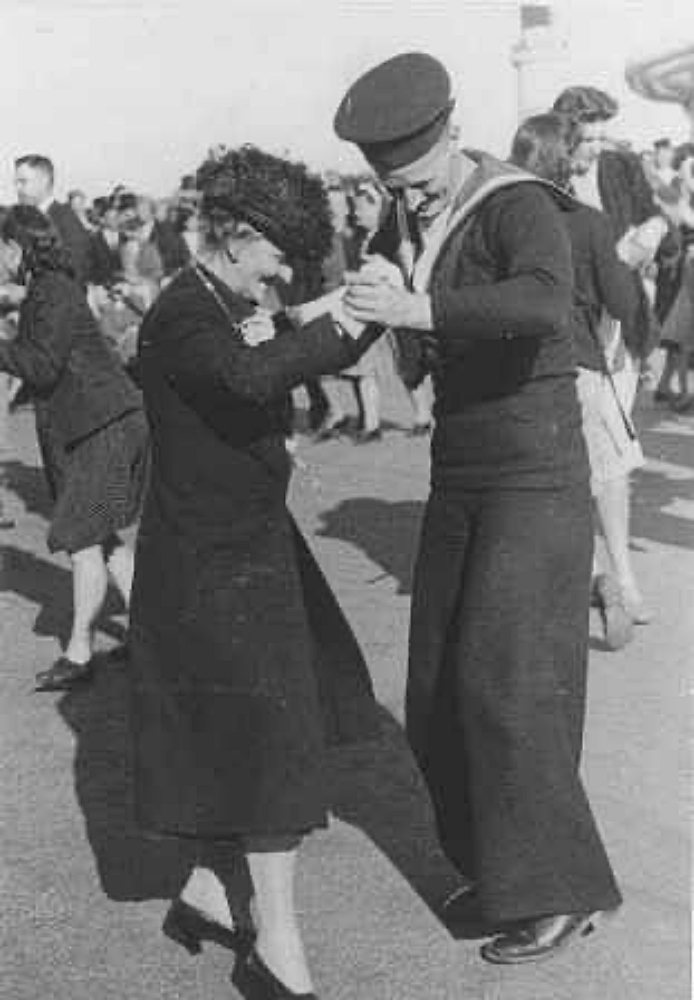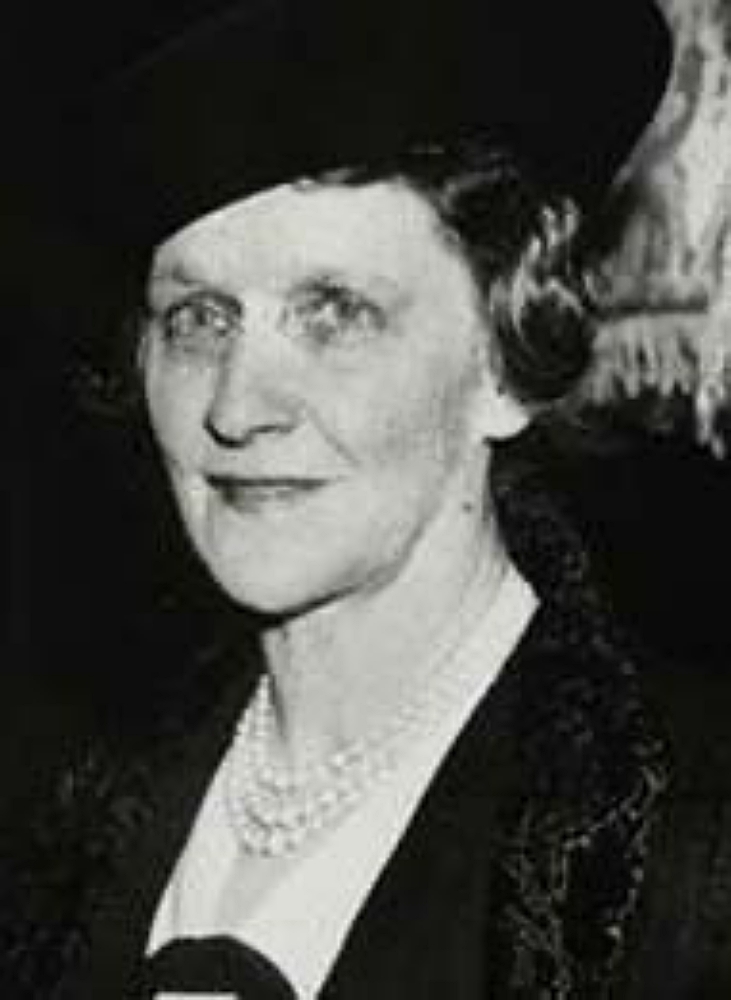Upstairs and Downstairs
“DEAR Freddie Feest”, writes Mrs Marjorie Beatie, “your two recent articles about notable women who’ve lived in Worthing were most interesting, but how could you have overlooked the remarkable Rosina Harrison?

Rosina (“Rose”) Harrison retired to Worthing and was eventually persuaded to write a book about her unique “upstairs and downstairs” life with multi-millionairess MP, Lady Astor.
Not only did she unexpectedly become one of the most travelled women of her generation but she led a remarkable – not to mention confrontational – life as personal maid to the fiery Lady Astor, Britain’s first-ever woman member of parliament.
Freddie Feest replies: “I omitted Rosina Harrison from my shortlist because she lived in Worthing only during retirement. On second thoughts, because she was such an intriguing character and because so many other Worthing residents are also retirees, Rosina should be included. So here goes . . .”
Rose, as Rosina Harrison quickly became known to all her Worthing neighbours, managed to keep her fascinating background a secret for six years after retiring to Worthing in 1968. Then, one day in the Post Office queue, she let slip that, after spending her life savings of £498 on a retirement bungalow in Worthing, she had told multi-millionairess Lady Astor: “I’m now a woman of property, the same as you.”
The retired maid in Worthing who helped look after one of the most famous women in the world
So who was this motherly, occasionally obstinate, white-haired lady of an uncertain age and forthright manner – and how did she come to tame the sharp tongue of Nancy, Viscountess Lady Astor, the American-born multi-millionairess, who, in 1919, became the first woman MP to take her seat in the House of Commons?
Rose, it transpired, had worked as a maid for Nancy, Lady Astor, for 35 years, when because of her wealth, outspokenness, political influence and the people she mixed with, she was probably the most famous woman in the western world.
Lady Astor and Rose had a curious, abrasive relationship, and there were times when Lord Astor used to creep into an adjacent room to hear what they were yelling at each other.
Once, Lady Astor lashed out with her foot at her servant – and Rose Harrison made a lightning grab at it to uproot her!
“When you are living with a dictatorial woman, you have not got to be a little mouse,” Rose told a Worthing friend later. “I had as much right on this earth as her, even though she’s my employer. I didn’t see why I should be spoken to like she used to speak to me. I couldn’t take it.”
Many aspects of Rose’s working life “in service” were untypical, to say the least.
Fortunately for social history, she was eventually persuaded to tell her unique, real-life “upstairs and downstairs” story to a colleague of mine on the Worthing Gazette.
What a fascinating social document of those life-changing times it turned out to be, so much so that Rose eventually wrote a book about her unique working life.

Before joining the grand Astor household, Rose had worked for another aristocrat, Lady Salisbury. “She had perfect manners,” recalled Rose. “What a difference it was working for Lady Astor.
“She was an American and abrupt to a point in her way of speaking, I mean, her demands were never met. She would say, sharply, ‘I want this’ and ‘Where have you been?’ Well, I wasn’t used to it and thought, I’ll never be able to stick this.”
“Lady Astor couldn’t keep a maid – she had three in the year that I was with Miss Wissie” (Lady Astor’s daughter, the honourable Phyllis Astor, later Lady Ancaster).
Rose Harrison got on well with Edwin Lee, the steward at Cliveden, the Astors’ main stately home in England.
But when he told Rose that Lady Astor was going to take her off Miss Wissie and for herself, she burst into tears and said: “I don’t think I will be able to stick her.
“But I had to take her on because I was given an ultimatum. Either take her on, or go. Behind my back, the staff gave me three months with her ladyship . . . Lady Astor used to say to me, ‘When I took you on, Rose’ . . . but I would point out “Look lady, you never took me on – I took you on. You took me off your daughter. I wasn’t going to let her get away with that . . . “Many years later, her ladyship said to me, ‘Promise you’ll never leave me Rose’, but I said, ‘Oh, no, my lady. So much will happen to me in my lifetime that I may have to break such a promise. It’s not fair of you to ask me.
“But I did add, ‘I’ll never do the dirty on you and will never go behind your back or leave you in the lurch. I will always be straightforward.”

“One maid of hers had run away but on principle I would never do that, as hard as I had to work. Lady Astor wasn’t all that bad really but she did keep the staff running – all 26 of us.”
Rose’s burning ambition to travel was well met by the super-rich Astors, who, during the 1920s and 1930s, took her to America 20 times, to Europe, Turkey, Bermuda and a host of other exotic places.
By World War Two and the blitz, they were in Plymouth, where Lady Astor was the local MP and Lord Astor was for five years the Lord Mayor.
The city suffered appalling bombing during that time.
It was in the mid-1940s, towards the end of the war, that Rose experienced the greatest changes ever in the “upstairs and downstairs” life of the aristocratic English household.
“For the Astor staff and particularly the old faithfuls, of whom I had now become one,” she recalled, “the most striking changes were in relationships. No longer did the distinction of servant and master apply. We were all family. During the war, we had soldiered together, looked death in the face and suffered the loss of many friends. We’d been shown qualities no other circumstances could have demonstrated to us, and had shared emotions that would otherwise have remained hidden.
We’d liked what we had seen and these ties were now as strong as those of class and birth.
“They are bonds that few of us will ever know again. They gave my life a new purpose.”